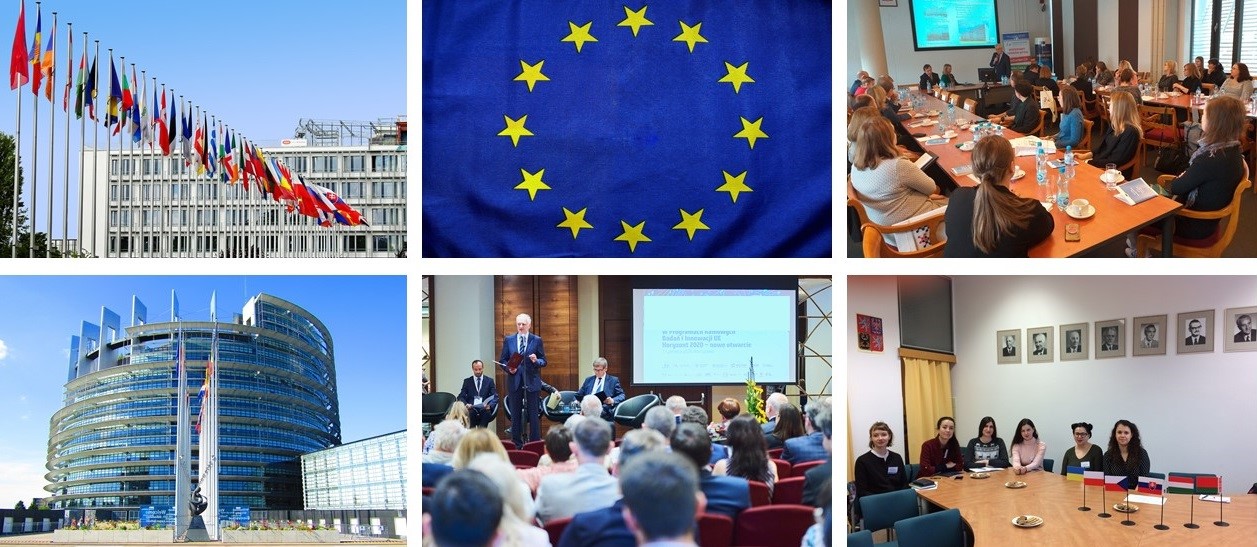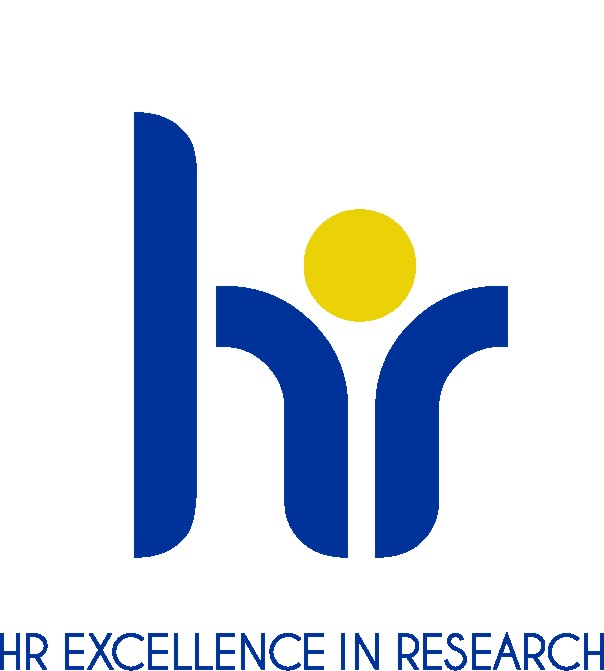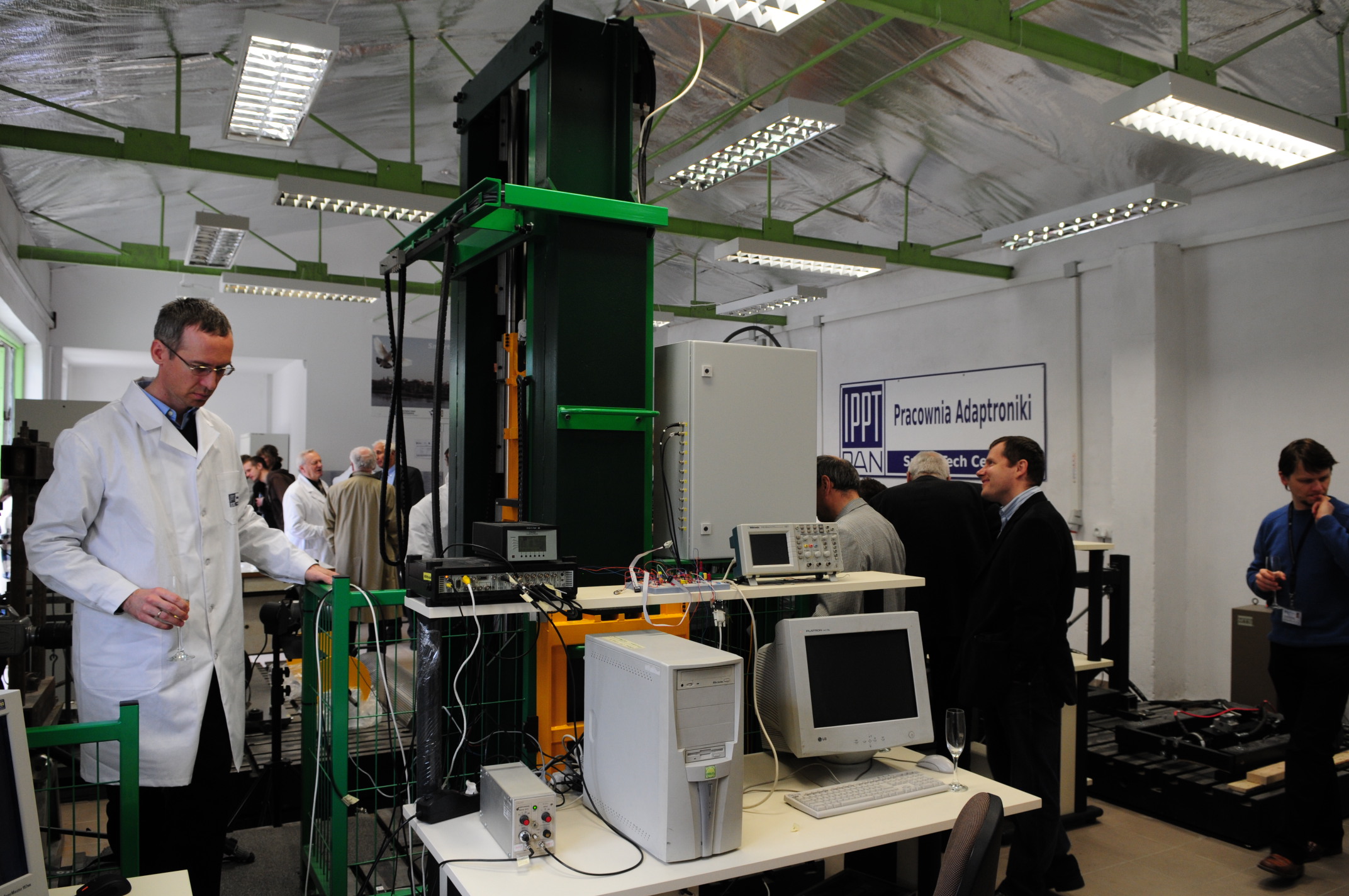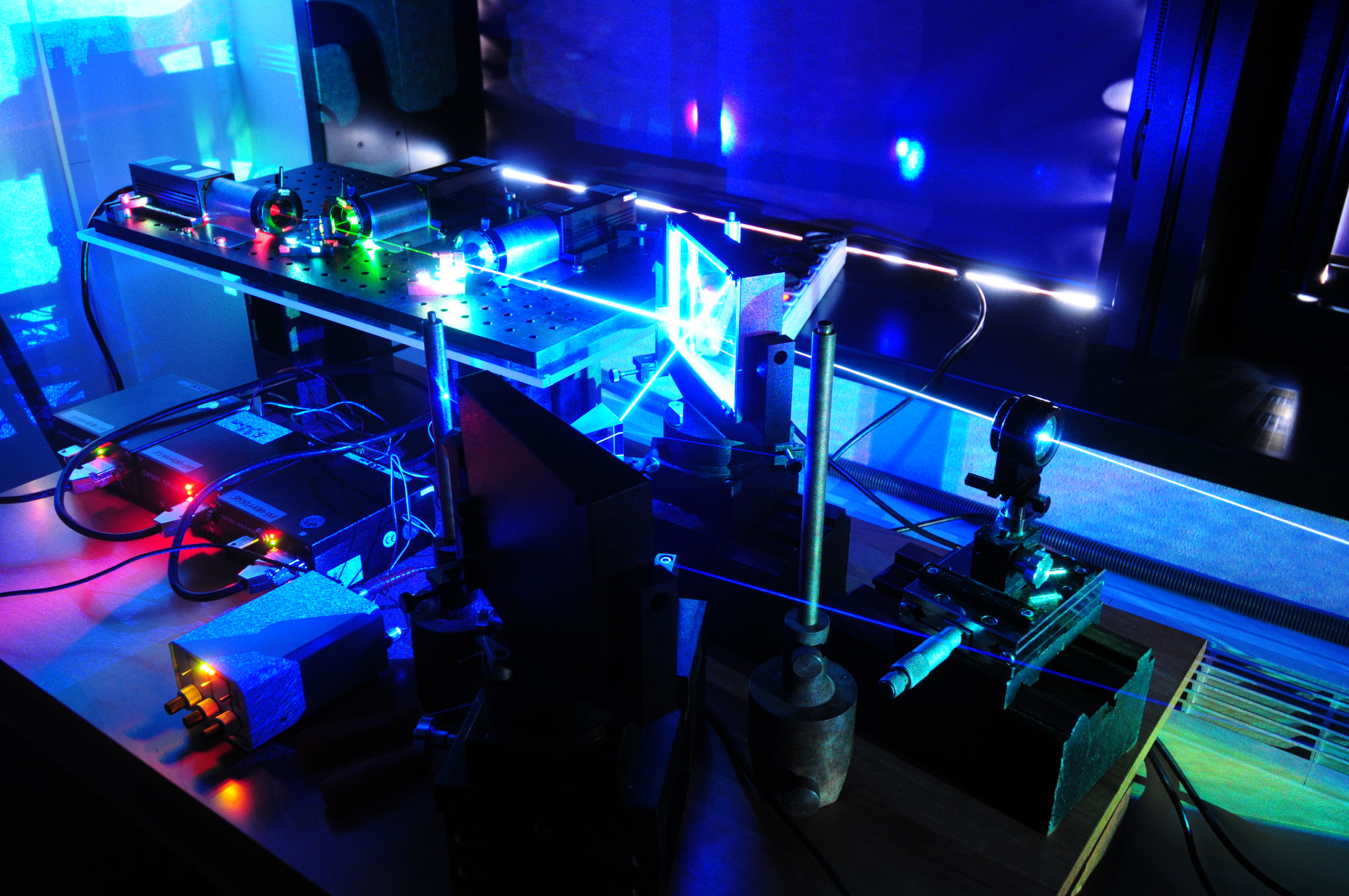
Institute of Fundamental Technological Research
Polish Academy of Sciences
Programs
IPPT PAN takes great pride in a long-standing cooperation with most of the European countries. Ever since the beginning of our existence, the Institute has committed itself to the cooperation of single and international European science and research centres. IPPT PAN organized and carried out dozens of international projects, conferences and scientific exchange. Moreover, IPPT PAN professors fulfilled duties resulting from various memberships of the most important European scientific societies and organizations. As a result, after 1999, our professors contributed to the creation of many centers of excellence, which greatly facilitated joint scientific activities in several laboratories around Europe. These centers of excellence included: LAPROMAT Centre of Excellence for Laser Processing and Material Advanced Testing; AMAS Center of Excellence or KMM-NoE Center of Excellence. The cooperation has been very fruitful and further resulted in the establishment of the European Virtual Institute on Knowledge-based Multifunctional Materials (KMM-VIN AISBL) based in Brussels.
Parallel to the above, IPPT PAN started the operation of the National Contact Point for Research Programmes of the EU (KPK). The KPK's establishment resulted from the fact that our scientists participated in the competition announced by the State Committee for Scientific Research for organizing information and training campaigns on the Polish accession to the 5th EU Framework Programme for Research and Technological Development (1999-2002). Further similar activities were assigned to KPK by the Minister of Science and Higher Education for consecutive framework programmes: 6PR (2002-2006) and 7PR (2007-2013). Currently, IPPT PAN scientists continue expert consulting in various European programmes, and since 2021, KPK operates under the National Centre for Research and Development.
High level of scientific research at IPPT PAN, leadership in numerous international science projects, lectures given for internationally recognized centers, and our extensive organizational experience have all contributed to the fact that IPPT PAN is now one of the most important partners in European science consortia.

IPPT PAN PROJECTS CO-FINANCED FROM THE EUROPEAN UNION FUNDS
Selected, most important programmes in which IPPT PAN participated:
-
National Operational Programmes
IPPT PAN has gained extensive experience in carrying out National Operational Programmes, some of which included:- ✓ Innovative Economy Operational Programme (POIG)
- ✓ Innovative Economy Operational Programme (POIG)
- ✓ Human Capital Operational Programme (POKL)
- ✓ Digital Poland Operational Programme (POPC)
As part of POIG, our Institute coordinated and was a strategic partner of several of the biggest projects. They were carried out in cooperation with the National Center for Research and Development. Among them, the Institute carried out: KomCerMet - Ceramic-Metal Composites and Nanocomposites for Aerospace and Automotive Industries; Medical Ultrasound Instruments - New Methods of Testing and Visualization of Tissue Structure of Human Organs; CEZAMAT - Center of Research on Advanced Materials and Technologies; PKAERO - Innovative Material Technologies for Aero-Industry; MONIT - Structural Health Monitoring and Evaluation of its Durability; Ochota Biocentre - Infrastructure for the Development of Strategic Directions of Biology and Medicine; CePT - Centre for Preclinical Research and Technology; Innovative Cement Binders and Concretes with Addition of High Calcium Fly Ash; and Database Information Platform for Effective Implementation of Research Results.
In cooperation with the National Information Processing Institute, IPPT PAN carried out: NUMPRESS - Advanced Numerical Methods of Analysis, Optimization and Reliability Assessment for Industrial Metal Forming Processes. In cooperation with The Foundation for Polish Science (FNP), the Institute carried out: Smart Technologies for Safety Engineering - SMART and SAFE project; and Mechanistic Aspects and Spatial Organization of Cell Signalling.
IPPT PAN also participated in POKL programme in: Bionic Sonar, Commercialization of Innovative, Passive Underwater Acoustic Communication System; and Research Technique and a Measuring Device for Viscoelastic Materials Properties in Nano Scale.
In POPC programme, IPPT PAN took part in the project of Digital Repository of Scientific Institutes (DRSI). For more information about the project, visit: www
-
Regional Operational Programmes
IPPT PAN received funds managed by The Office of the Marshal of the Mazowieckie Voivodeship in Warsaw. These EU grants are managed by voivodeship managements and are allocated for the development of regions. The Energy Conversion and Renewable Resources PAS Research Center in Jabłonna was among the recipients. The Center was initiated by IMP PAS (Institute of Fluid-Flow Machinery PAS) and PAS. -
Framework Programmes
Framework Programme funds can be given to co-finance specific areas projects. IPPT PAN has taken part in: 5FP, 6FP, 7FP, Horizon 2020, COSME, Erasmus, Erasmus +, Marie Curie Industry-Academia Partnerships and Pathways (IAPP), "Cooperation" Programme of: Nanoscience, Nanotechnology, Materials and New Manufacturing Technologies, etc.IPPT PAN participated in FP7 - PEOPLE, Marie Curie Industry-Academia Partnerships and Pathways (IAPP). The cooperation, among others, included: Smart Technologies for Transport Safety - Innovation Cluster Nesting (Smart-Nest) of which more information can be found at: www and www; and Innate Immune Signalling: Optimal Microfluidics Protocols, Prediction and Control, for which more information is available at: www.
IPPT PAN participation in FP6 – NMP COOPERATION: Nanoscience, Nanotechnology, Materials and New Manufacturing Technologies included, among others, the project of: INNVIN - Innovative Materials Solutions for Transport, Energy and Biomedical Sectors by Strengthening Integration and Enhancing Research Dynamics of KMM-VIN.
IPPT PAN participation in Horizon 2020 also included the following projects:
- iP-OSTEO – Induced Pluripotent Stem Cell Seeded Active Osteochondral Nanofibrous Scaffolds, carried out as part of the H2020-MSCA-RISE-2018 Marie Skłodowska-Curie Research and Innovation Staff Exchange (MSCA RISE) competition. The project is partnered with: Inocure Sro Czechia; Szechenyi Istvan University Hungary; Ospin Gmbh Germany; Bioneer A/S Denmark; Orthosera Gmbh Austria; University College London United Kingdom; Hochschule Rhein-Waal-Hsrw Rhine-Waal University Of Applied Sciences Germany; Lls Rowiak Laserlabsolutions Gmbh Germany; Corticalis As Norway; Fraunhofer Gesellschaft Zur Foerderung Der Angewandten Forschung E.V. Germany; Biofabics Lda Portugal; Scinus Holding Bv Netherlands And Ustav Experimentalni Mediciny Akademie Ved Ceske Republiky Verejna Vyzkumna Instituce (project coordinator, Czechia). More information available at: www.
- Unraveling the Role of Anisotropy in Material Failure, which is carried out as part of H2020-MSCA-RISE-2017 Marie Skłodowska-Curie Research and Innovation Staff Exchange (MSCA RISE) competition. The research is conducted by a consortium of four institutions based and associated in Europe and of four partnered institutions. Apart From IPPT PAN, the project beneficiaries include: Universidad Carlos III De Madrid In Spain; Universite De Lorraine In France; Technion - Israel Institute Of Technology In Israel. The Partnered Institutions Were Four Leading Scientific Institutions From The US: Trustees Of Columbia University In The City Of New York; University of Florida; Texas A&M University System and Battelle Memorial Institute Non Profit Corporation.
IPPT PAN participation in Erasmus and Erasmus+ included, among others, the following projects: "Complex EIT – Complexity from Nanotechnology to Big Systems". Złożoność od nanotechnologii do dużych systemów and Educational Mobility in Higher Education Sector Among Membership Countries.
For the complete list of EU financed and co-financed projects carried out by IPPT PAN, follow: www.
Participation in European Union projects plays a huge part in IPPT PAN, as it supports and fosters tighter cooperation between research teams from various countries and across disciplines in Europe, which, in turn, plays a significant role in maintaining the highest quality of research and helping to achieve scientific breakthroughs. The cooperation also brings an additional advantage of giving IPPT PAN the possibility to disseminate information of the Institute’s achievements and innovations with market potential. The European programmes also help scientists find solutions to most urgent social problems such as climate change, eco-friendly transportation, renewable resources energy, or even solve issues related to fighting the pandemic.

Rules and procedures of outbound mobility of PhD students and staff IPPT PAN
Under the Erasmus+ programme the following types of outbound mobility are eligible:
- a. PhD students mobility for traineeship (SMT),
- b. staff mobility for teaching (STA),
- c. staff mobility for training (STT).
Higher education institutions in Erasmus+ countries, to which outbound mobility is planned, need to have Erasmus Charter for Higher Education (ECHE) valid at least in the academic year when the mobility is held.
Outbound Staff mobility for teaching to any Erasmus+ country require prior conclusion of the Inter-Institutional Agreement between IPPT PAN and the receiving institution abroad.
Recruitment of staff member and PhD students for mobility is conducted according to the call for applicants launched by the Erasmus+ committee on 17.10.2023.
Erasmus+ application for mobility shall be submitted along with mandatory supporting documents to the Erasmus+ coordinator at IPPT PAN.
Before the mobility: participants approved for mobility by the Erasmus+ committee submit the following documents:
- travel application form
- mobility agreement with IPPT PAN regarding staff of student mobility
and:
- in case of student mobility for traineeship – Learning Agreement – Student Mobility for Traineeship
- in case of staff mobility for training – Mobility Agreement – Staff Mobility for Training
- in case of staff mobility for teaching – Mobility Agreement – Staff Mobility for Teaching.
During the mobility in the receiving institution mobility participants are obliged to:
- meet the mobility goals and implement the mobility agenda as set out in the relevant agreements;
- receive a mobility certificate confirming the exact dates of mobility, implemented agenda and achieved goals, the certificate should be signed by an authorised person at the receiving institution (it is mandatory to bring the original copy).
After the mobility each returning participant:
- delivers the mobility certificate to the Erasmus+ coordinator at the IPPT PAN,
- fills in a mobility report in the Beneficiary Module.
Please note that if the mobility participant has received additional funding for the trip from sources other than the Erasmus+ programme (e.g. for additional days of stay not financed by the programme), they shall account for them in accordance with the usual rules in force at IPPT PAN for business trips.

Rules and procedures of inbound mobility at IPPT PAN
(visits of students and staff from foreign organisations to IPPT PAN)
Under Erasmus+ programme the following types of inbound mobility from foreign higher education organisations to IPPT PAN are eligible:
- a) mobility of students, including PhD students, for traineeships,
- b) mobility of staff for teaching or training.
In order to receive an employee or a student of a foreign institution at IPPT PAN it is necessary to:
A. before his/her mobility: agree the scope and conditions of the mobility with the foreign sending institution, confirmed in writing in the following documents:
a) in the case of staff mobility for teaching:
- Inter-institutional Agreement, agreed between authorised persons from both institutions in charge of the merits of the visit, in collaboration with Erasmus+ Coordinator at IPPT PAN,
- Mobility Agreement – Staff Mobility for Teaching,
b) in the case of staff mobility for training:
- Mobility Agreement – Staff Mobility for Training,
c) in the case of student (including PhD student) mobility for traineeships:
- Learning Agreement – Student Mobility for Traineeships.
Visitors to IPPT PAN under Erasmus+ programme need to have (ensured by the sending institution or by themselves) insurance as required by the programme (health, casualty, and in the case of students – also - liability insurance in professional life) valid in Poland and valid throughout the whole mobility period.
Heads of departments at IPPT PAN, involved in making inbound mobility arrangements, act in collaboration with Erasmus+ Coordinator at IPPT PAN.
B. during his/her mobility at IPPT PAN:
- supervise and monitor merit-related aspects of the mobility (responsible: the department where mobility tasks will be implemented) and provide organisational support to the mobility participant (responsible: the relevant department in collaboration with Erasmus+ Coordinator at IPPT PAN) in accordance with relevant agreements, referred to in A. section above,
- prepare a mobility certificate (responsible: Erasmus+ Coordinator in collaboration with the supervisor of the incoming mobility participant at IPPT PAN) and provide the mobility participant with it at the end of or after the mobility period,
- (applicable to students, including PhD students, only) fill in relevant sections of "Learning Agreement: Student mobility for traineeships": "During the mobility" (if changes in the mobility agenda occur) and "After the mobility" (in all cases).
These rules and procedures are valid until further notice or losing by IPPT PAN the right to host mobility participants under Erasmus+ programme.
Questions regarding inbound mobility under Erasmus+ programme should be addressed to Erasmus+ Coordinator at IPPT PAN.
Since 2018 IPPT PAN has been participating in Erasmus+ programme after being awarded by the European Commission with the Erasmus Charter for Higher Education (for the years 2014-2020 and 2021-2027 respectively).
Erasmus+ is the European Union programme to support education, training, youth and sport activities. The programme has originated from the well-known European educational programmes such as Lifelong learning, Youth in Action, Erasmus Mundus or Tempus.
More information: https://ec.europa.eu/programmes/erasmus-plus/node_en
 Erasmus Charter for Higher Education 2014-2020
Erasmus Charter for Higher Education 2014-2020 Erasmus Policy Statement 2018
Erasmus Policy Statement 2018 Erasmus Charter for Higher Education 2021-2027
Erasmus Charter for Higher Education 2021-2027 Erasmus Policy Statement 2021-2027
Erasmus Policy Statement 2021-2027
Rules of Erasmus+ programme implementation at IPPT PAN
IPPT PAN - as an institution which runs PhD schools and holds "Erasmus Charter for Higher Education” - has the right to host incoming mobility participants from eligible foreign institutions and – subject to availability of a grant from Erasmus+ programme - to send PhD students and staff to relevant institutions, located abroad.
Currently IPPT PAN executes inbound mobility from eligible organisations located in:
- the European Union Member States,
- the following third countries associated to the programme: Iceland, Liechtenstein, North Macedonia, Norway, Serbia and Turkey.
The Erasmus+ eligible mobility goals are education, teaching and training.
In case of mobility between the countries referred to above the general rule is that an individual scholarship (and in case of staff mobility, also a travel grant) is paid from the programme funds by a sending organisation.
The Institute of Fundamental Technological Research, Polish Academy of Sciences (IPPT PAN) – one of the largest engineering sciences institute of the Academy – has the ambition to increase its international recognition as an excellent institution creating favourable conditions for research and researchers.
The Institute regularly undertakes systemic measures to stimulate excellence in its performance, such as creation of favourable working environment, annual assessment of the quality of research and implementation of Human Resources Strategy for Researchers (HRS4R).
In 2016 IPPT PAN conducted the process of internal analysis regarding the compliance with the principles of the European Charter for Researchers and the Code of Conduct for the Recruitment of Researchers, as laid down in the Recommendation of the European Commission 2005/251/EC.
The process and conclusions from the analysis as well as steps forward, specified in the Action Plan, were presented in HRS4R.

The activities, achievements and plans of the Institute were acknowledged by the European Commission who in December 2016 granted HR Excellence in Research award to IPPT PAN.
Thus IPPT PAN entered the path of the strategy implementation which is subject to periodic assessment by the European Commission.
In 2018 the process of Internal Review of 2-years implementation of HRS4R was launched. Its findings constituted the basis for the development of the Revised HRS4R and Action Plan.
The HRS4R implementation was well assessed and resulted in granting the highest possible grade ‘HRS4R embedded’ to the Institute by the European Commission.
Year 2022 is the year of another assessment. This time it is under Award Renewal procedure. Relevant documents have been transmitted to the European Commission for evaluation.
Since 2016 the HRS4R implementation has been bringing visible benefits and quality change to IPPT PAN.
HRS4R - documents:
- Initial Phase
 Declaration of commitment to the European Charter for Researchers and the Code of Conduct for Recruitment of Researchers, 2016
Declaration of commitment to the European Charter for Researchers and the Code of Conduct for Recruitment of Researchers, 2016 HRS4R - Gap Analysis and Action Plan, 2016
HRS4R - Gap Analysis and Action Plan, 2016  HRS4R - ANNEX, 2016
HRS4R - ANNEX, 2016
- Implementation Phase – Interim Assessment
- Implementation Phase – Award Renewal
 Updated HRS4R and Action Plan, 2022
Updated HRS4R and Action Plan, 2022 Internal Review, 2022
Internal Review, 2022 Updated HRS4R and Action Plan, 2022 (revised: 2023)
Updated HRS4R and Action Plan, 2022 (revised: 2023) Internal Review, 2022 (revised: 2023)
Internal Review, 2022 (revised: 2023)
Additional policy documents:
Development strategy of IPPT PAN - ![]() Outline,
Outline, ![]() Full document
Full document
















